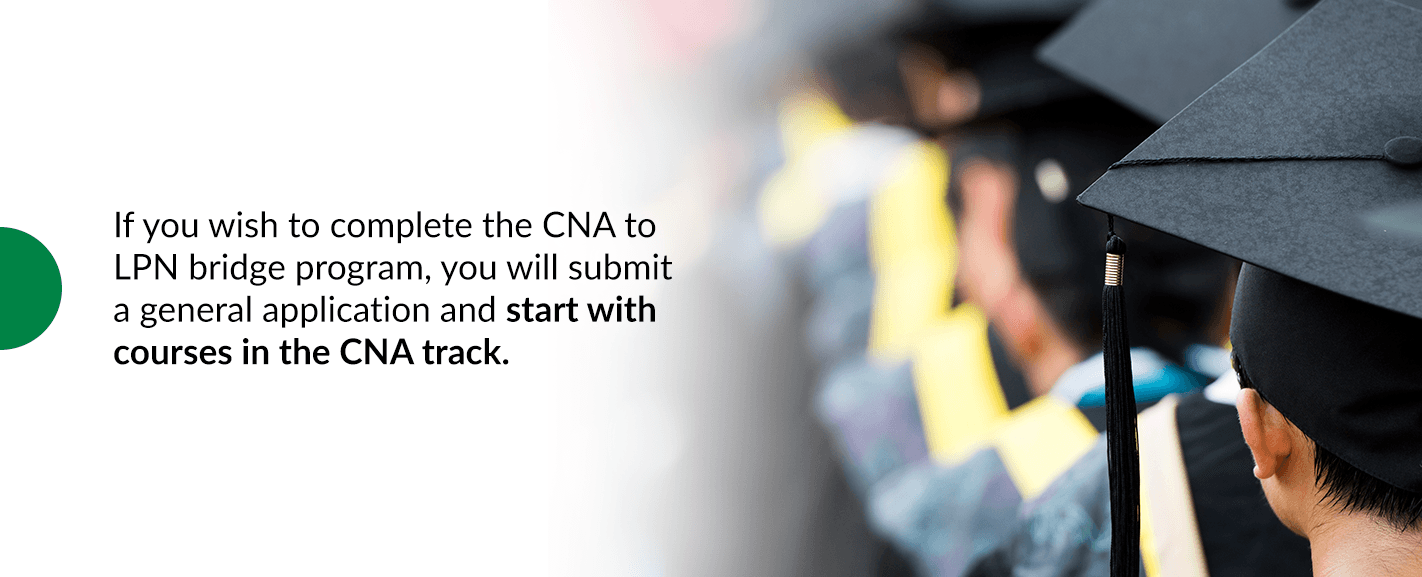
Being a certified nursing assistant (CNA) is a very rewarding career that helps individuals gain invaluable health care experience. But over time, it’s natural to want to take the next step in your career to become a licensed practical nurse (LPN). As an LPN, you have more responsibilities, career opportunities and increased earning potential while working under a registered nurse (RN), nurse practitioner (NP) or physician.
How do you move from a CNA to an LPN? If you earned your CNA degree at Mount Wachusett Community College (MWCC), you may be eligible for our CNA to LPN bridge program. To learn more about this program and if it’s right for you, we invite you to request more information today!
Quick Links
- What Is the CNA to LPN Bridge Program?
- How to Become an LPN
- Advantages of Moving From CNA to LPN
- Why Being a CNA Can Help Your Nursing Career
- Enroll in MWCC’s Program Today
What Is the CNA to LPN Bridge Program?
Our CNA to LPN bridge program equips you with the knowledge, skills and hands-on experience to advance your career from a CNA to an LPN. All students who complete and pass the necessary CNA walkway courses earn automatic acceptance into the LPN program, which allows them to fast-track their careers.
Some of the many advantages of CNA to LPN programs include:
- Supportive environment: We offer a supportive learning environment through flexible options, opportunities for professional development and personalized attention from your instructors.
- Career opportunities: A high percentage of our students find employment after graduation, and many graduates secure diverse nursing roles.
- Quality education: Our comprehensive curriculum and renowned faculty enable us to effectively prepare all students for a successful nursing career.
- Accelerated learning: Students who complete all necessary classes and maintain a specific grade point average in our CNA program earn automatic acceptance into our LPN bridge program. As a result, they can complete the program faster, graduating and entering the workforce sooner.

How to Become an LPN
As an LPN, you’ll perform the same duties you did as a CNA but with more focus on clinical skills and intervention. MWCC’s LPN program has a seven-course structure accredited by the Massachusetts Board of Nursing and the Accreditation Commission for Education in Nursing (ACEN).
If you wish to complete the CNA to LPN bridge program, you will submit a general application and start with courses in the CNA track. Once you take and pass all of the required walkway courses, you will be automatically accepted into the LPN program.
Courses you will take to qualify for the LPN program include:
- NUR 117: Nurse Assistant Theory
- MAT 126: Topics In Mathematics
- ENG 101: College Writing I
- PSY 110: Human Growth and Development
- PSY 105: Intro to Psychology
- HEA 106: Exploring Health Careers
- BIO 152: Essentials of Anatomy and Physiology
After graduation but before you enter the workforce, you’re required to sit for the National Council Licensure Examination (NCLEX-PN) and pass to earn your credential of an LPN.
Advantages of Moving From CNA to LPN
Transitioning from a CNA to an LPN has many advantages, including:
- Grow your career: Moving into an LPN role increases the scope of your clinical responsibilities, such as administering treatments and medications and managing medical conditions and care plans. As an LPN, you can work with many types of patients in nursing homes, rehab facilities, assisted living facilities, sub-acute hospitals, memory care facilities, specialized clinics and physician offices.
- Improve your earning potential: The median annual salary increases from about $38,000 for CNAs to $60,000 for LPNs.
- Access more leadership opportunities: As an LPN, you may be in charge of CNAs, LPNs and other assistive personnel in health care facilities. You also get to work more closely with RNs, doctors, physicians and other health care professionals on patient care management.
- Become an RN faster: When you transition to an LPN from a CNA, you can become an RN faster by taking an associate or bachelor’s degree program.
- Enjoy greater job stability and demand: Qualified nurses are always in high demand in various health care settings like hospitals, clinics and home health agencies. Due to this demand, becoming an LPN offers job stability and steady job growth.

Why Being a CNA Can Help Your Nursing Career
There are many reasons to become a CNA before an LPN — for one, it will open up more opportunities in the profession and help you find better-paying jobs. Becoming a CNA before an LPN equips you with the basic and foundational skills and training you’ll need as an LPN. It also gives you a glimpse into what a career in nursing is really like.
Your everyday experience as a CNA increases your chances of acceptance into LPN programs and gives you an edge over other students taking the LPN national exam. Having a CNA certificate before obtaining your LPN shows that you are serious about pursuing your degree. Being a CNA also indicates you already have some experience in real-life nursing situations that you can apply to being an LPN.
Enroll in MWCC’s Program Today
At Mount Wachusett Community College, we offer a CNA to LPN bridge program to help you kickstart your career in nursing. Enjoy flexible learning options, personalized attention and professional development opportunities. Our esteemed faculty follow a comprehensive curriculum to ensure you have the preparation you need for a fulfilling career in practical nursing.
To enroll for the MWCC CNA to LPN program, start by attending an info session to learn more about our nursing programs. Then, complete an application in a few easy steps.

